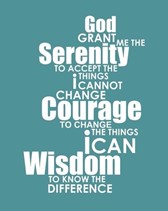When people come for therapy, they are often in a state of crisis or at a place where their ability to manage life issues has become overwhelming. Finding an emotional road map to guide them through the crisis is critical so that they can make their way to the other side and feel better!
Therapists use different treatment models and approaches in their therapy with clients, and most often it is a combination of approaches that best help the client resolve their issues (Feel less depressed or anxious, have more energy and focus, and thrive in relationships). Common treatment models include cognitive behavioral therapy (CBT), acceptance and commitment therapy (ACT), interpersonal therapy, EMDR therapy, and solution focused therapy as well as trauma informed, strength-based, and mindfulness approaches.
What Is Dialectical Behavior Therapy (DBT)?
One common approach that is very easy to integrate into therapy and set a foundation for further growth is dialectical behavioral therapy (DBT). Specifically, I love to teach the stand alone “DBT skills training” because it is evidence-based, and I have witnessed first hand how it can be so effective as an “emotional road map” for a client’s recovery and well-being.
Over the last twenty years an enormous amount of research has been conducted on the effectiveness of DBT interventions. Clinical trials and outcome studies have tested DBT skills training and found it has wide ranging application to effectively treat depression, anxiety, substance abuse, relationship problems, suicide risk, compulsive behaviors and a variety of other disorders (Chapman, 2006).
The foundational core concept in DBT is to learn the practice of mindfulness to promote wise living, balance extremes, and build a life you value.
DBT is about balancing acceptance and change, very much like the Serenity prayer in the twelve-step tradition. 
DBT skills training is divided into four key areas:
- Mindfulness Skills
- Emotion Regulation Skills
- Distress Tolerance (Crisis) Skills
- Interpersonal Effectiveness Skills.
The beauty of the DBT practice model is that the founder, Marsha Linehan, and her team developed each core area by drawing on the best techniques of several major psychological theories and treatment models.
The DBT Skills Training Workbook synthesizes these concepts into one integrated package, for example:
- In DBT Emotion Regulation one of the DBT tools to change emotions is “check the facts” which directly correlates to CBT in which one challenges biased thought distortions.
- DBT Emotion Regulation also uses “accumulating positive emotions/ pleasant activities” which has a parallel in Gottman marriage therapy in which building a couple’s “emotional bank” increases resiliency.
- DBT distress tolerance skills parallel sensory soothing and relaxation techniques, paired with reality acceptance skills which essentially help move clients through loss (ie Kubler-Ross’ stages of grief) to acceptance.
- DBT Interpersonal Effectiveness builds on assertive communication skills and helps clarify relationship values and goals.
I find that DBT emotion regulation and distress tolerance skills help clients understand and work through painful feelings:
- When their lives are not the way they wanted or expected it to be,
- When they experience loss
- When they feel they cannot control their emotions
You can find the tools to heal, and build a life worth living: a life filled with purpose, people and things you value.
It has been truly humbling and inspirational to see my clients use DBT skills to gain deeper understanding of their emotions, learn how to control them and take effective action in their lives. Most importantly I have applied these skills in my own life! I can truly testify that they have contributed significantly to my personal growth and strengthened my relationships.
Cathy provides a safe place to learn and practice these DBT skills. Please contact us if you would like to know more about our DBT Skills Group, Individual Therapy, Couples Therapy, and more.
References:
Chapman A. L. (2006). Dialectical behavior therapy: current indications and unique elements. Psychiatry 3(9), 62–68.
Linehan, M. (2015). DBT Skills Training Manual. Guilford Press, New York.
This article does not take the place of professional psychotherapy or counseling. If you would like to schedule an appointment or for a free phone consultation, please contact us here or call (760) 489-1092.
If you’d like to learn about getting the most out of therapy, check out our FREE Ultimate Guide and learn the top 25 ways to optimize your therapy.



